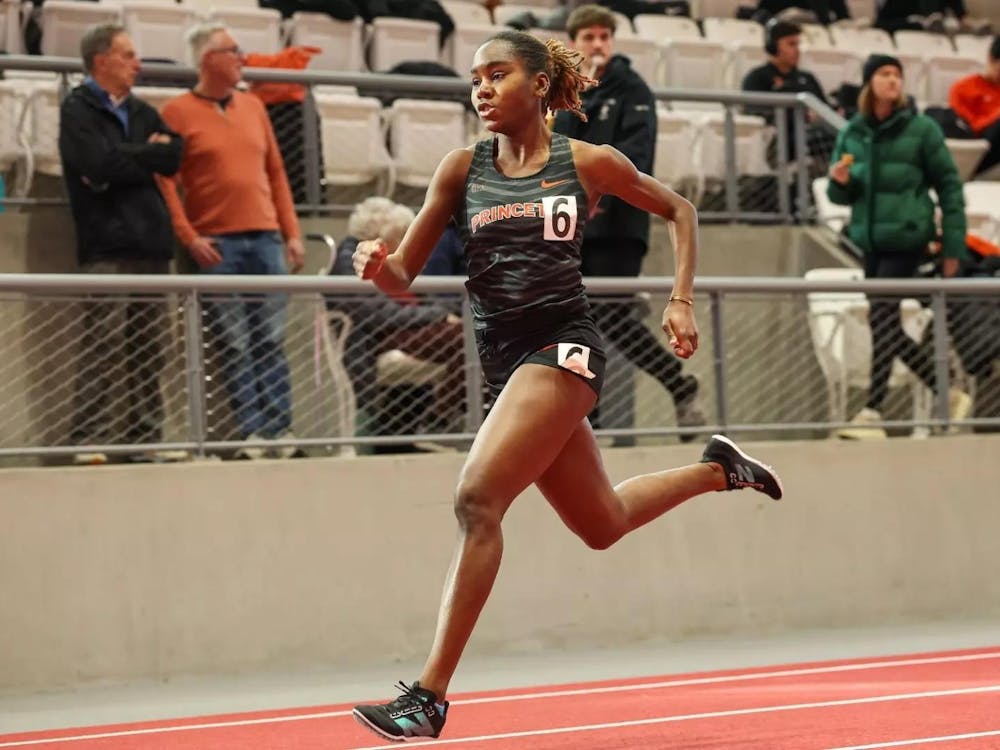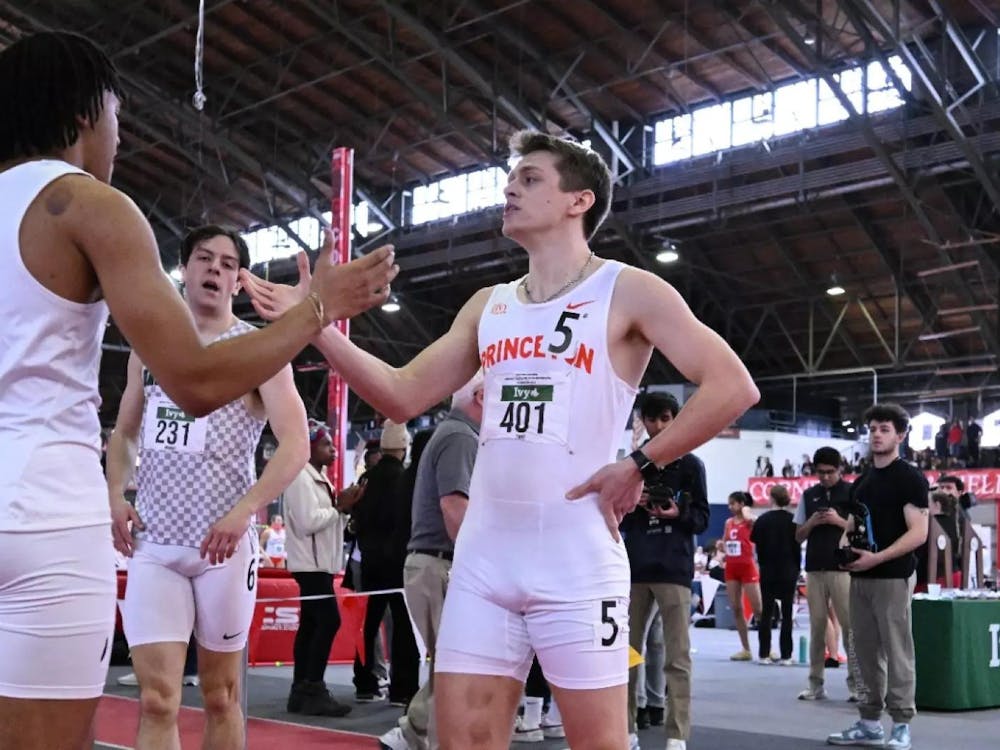Senior defensive end Phil Jackman rolls off his blocker as Harvard quarterback Neil Rose drops back. He closes immediately on Rose, pummeling his blindside, forcing the Crimson to a goal line punt. Sophomore quarterback Dave Splithoff drops back to pass on a fourth down with only one yard to go. He sees he is being blitzed, so he does the only thing he can — he scrambles for the first down himself, setting up a field goal to put Princeton on the board in the first quarter.
You're probably wondering what both of these plays had in common?
They are both big plays, turning points in the game, made by players who have proven themselves to be playmakers.
But Jackman and Splithoff are not the only playmakers on this Tiger squad. No one player makes the football team. There is no "Superman", no one faster than a speeding pass, more powerful than a locomotive-like lineman, or able to leap tall tacklers in a single bound.
There are, however, several players on the team who have the knack for making standout plays that change the tide of a game. They are a team's weapons. When a team has all its weapons together in one game, it might not be composed of men of steel, but it could be a team of metal.
Against Brown last week, the Tigers were missing several of their key weapons, and it showed.
Missing junior wide receiver Chisom Opara affected Princeton's passing game more than anything. In the game against the Bears, Splithoff managed only 82 yards passing among all his receivers. In this week's game against Harvard, Splithoff had 111 yards passing — to Opara.
"Chisom is a playmaker, there's no denying that," head coach Roger Hughes said.

Before Opara's injury against Colgate, Splithoff had 446 total passing yards, with 3 touchdowns and a 70.1 completion percentage. During Opara's injury, Splithoff passed for only 175 yards with no touchdowns, and his completion percentage dropped to 43.2.
Against Harvard, Opara sparked the offense with two big plays. The first was inadvertent when Splithoff tried to hit him downfield for a first down and the ball tipped off his fingers only to be caught by junior wide receiver Nate Lindell. His second was on a flea-flicker from Atkinson to Splithoff, who hefted the ball downfield to Opara for a 49-yard gain.
On defense, senior linebacker Chris Roser-Jones and sophomore cornerback Brandon Mueller both missed games earlier in the season due to minor injuries.
"I thought our defense played lights out in the first half giving us plenty of opportunities [to score]," Hughes said. "They played very physical and that was one of our goals."

With both back, Princeton was able to put up a strong front against the Harvard duo of Rose and wide receiver Carl Morris.
In the linebacker corps, there is none more explosive than Roser-Jones. His ability to be at the right place at the right time when quarterbacks are passing seems uncanny at times. He currently leads the team in interceptions on the season.
In the last game he played before his injury, he picked off two passes against Columbia and returned one for a touchdown.
In his return performance Roser-Jones sparked the entire team when he intercepted Harvard quarterback Rose and returned it to the red zone for the offense, giving Rose his first interception of the year. Roser-Jones also added five unassisted tackles, third most on the team in the game.
Mueller, on the other hand, led Princeton in tackling with 10. He had several key tackles that kept Harvard receivers from going the distance.
With all its key players back in action, Princeton played Harvard (now tied for first in the Ivy League) to a game decided by a field goal.
"I think we played a full 60 minutes this week, and that's a step in the right direction," Hughes said.







